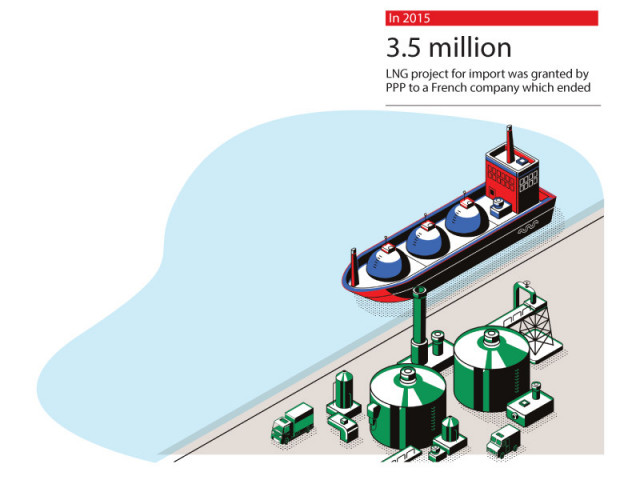France eyes return to Pakistan’s LNG market
After legal disputes, French firms seek collaboration to address looming gas shortage

France is poised to re-enter Pakistan’s Liquefied natural gas (LNG) export market after an absence of over a decade, following a legal dispute that led to a French company withdrawing from the sector. During the previous Pakistan Peoples’ Party (PPP) administration, a contract for an LNG project was awarded to French firm, GDF-Suez (now ENGIE), which eventually ended up in the apex court.
The PPP government granted a 3.5 million tonne LNG import project to the GDF-Suez on February 9, 2010. However, in March of the same year, a news report alleged a $1 billion loss in the deal, prompting the Supreme Court to take suo motu notice of the matter. Upon investigation, the apex court found no loss and instructed the government to review the decision.
Subsequently, the Supreme Court directed the then prime minister to oversee the bidding process for LNG import in April 2010. However, disputes between the petroleum ministry and the law division led to the cancellation of the project. Following this, the French firm exited Pakistan and did not engage in any LNG ventures thereafter.
The subsequent Pakistan Muslim League-Nawaz (PML-N) government signed an LNG deal with Qatar in 2015, effectively initiating LNG imports to Pakistan. In addition to Qatar, Pakistan has been importing LNG on a spot purchase basis. However, Pakistan LNG Limited (PLL) has struggled to secure LNG deals through spot purchases in recent years. Even after floating a tender for short-term LNG deals, no companies participated.
As Pakistan’s indigenous gas reserves continue to deplete by 6% every year while demand rises, there emerges an opportunity for French firms to export LNG to Pakistan, potentially averting an impending gas crisis.
The PML-N government’s success in materialising LNG projects has drawn France’s interest back into the LNG business, with intentions to engage in other energy projects once PML-N returns to power.
In a recent meeting, the French Deputy Head of Mission, Guillaume Dabouis, met with the newly appointed Minister of Energy, Dr Musadiq Masood Malik. They discussed potential collaboration in Pakistan’s energy sector, including LNG cargo provision, energy resource exploration, and projects to improve energy trading, distribution, and transmission within the country. The French delegation also expressed interest in initiatives to reduce line losses and revitalise Pakistan’s energy sector.
The Pakistani minister reiterated his commitment to addressing Pakistan’s longstanding energy challenges comprehensively. He assured that the new government would present a thoroughly prepared plan to the International Monetary Fund (IMF), ensuring that any agreements made with the IMF are discussed with stakeholders to make sure they align with the best interests of the Pakistani people. Additionally, he underscored the government’s broader economic reform agenda, focusing on sectors such as energy, finance, commerce, industries and production, and communication.
He ensured that the prioritisation of Informational Technology (IT) and Small and Medium sized Enterprises (SMEs) remains steadfast in line with the prime minister’s transformation plan. The minister affirmed the prime minister’s commitment to modernising the agricultural sector through the integration of AI and machine learning technologies.
The discussions between the French deputy head of mission and the minister of energy signal promising collaboration between the two countries, holding the potential to address Pakistan’s energy needs while fostering mutually beneficial partnerships.
Published in The Express Tribune, March 15th, 2024.
Like Business on Facebook, follow @TribuneBiz on Twitter to stay informed and join in the conversation.



















COMMENTS
Comments are moderated and generally will be posted if they are on-topic and not abusive.
For more information, please see our Comments FAQ